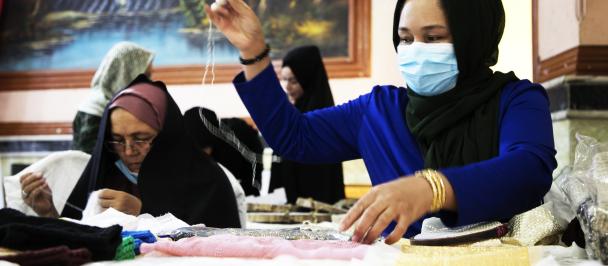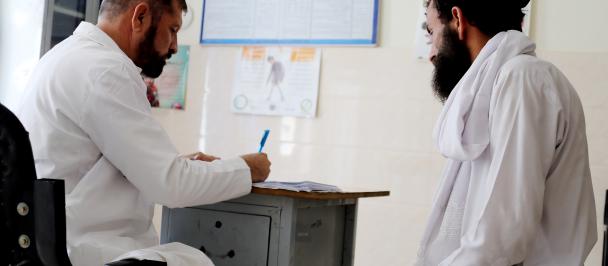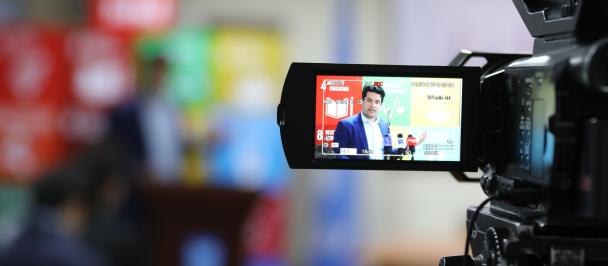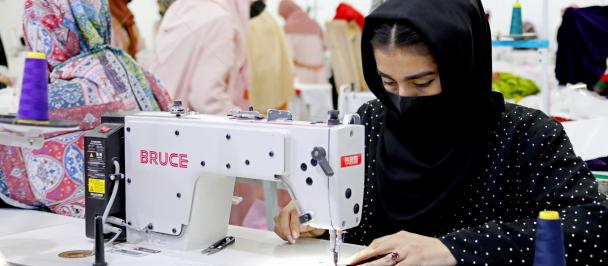UNDP partner Human Rights Research and Advocacy Consortium (HRRAC) promotes community-based advocacy, methods in peace-building, and how to identify elements of social cohesion in Surobi, Kabul.
Community Advocacy Brings Peace of Mind
September 22, 2022

Community Conflict Resolution Committee meeting in Surobi district of Kabul, Afghanistan
“Explosions at the stone quarries harm those living close by,” says Abdul Qayum, a community elder and participant of UNDP Afghanistan’s partner HRRAC’s programme, aimed to build community-based advocacy committees.
“Large quantities of explosives used by construction companies make terrible, unsettling sounds. Small rocks fly into residential and cattle grazing areas. By participating in HRRAC’s methods of advocacy campaigns, our awareness level of what we can collectively do as a community, increased."
Under the guidance and trainings provided by HRRAC, the Community Conflict Resolution Committee was formed and members discussed the best way to convey their concerns to the construction company. Eventually, a plan to request the time schedule for explosions and to avoid rest times was put together. Together they explored the possibility of using different techniques that will cause less anxiety to the locals and the cattle living near by.
The advocacy was successful, and the workers pledged in writing to comply with the community’s request.
“They now operate in limited hours when most community members are out for work and not in the middle of our rests as before. The work schedule is shared with the Community Conflict Resolution Committee members in advance, and now we can herd our cattle in safe areas and times. The mental stress levels have gone down, as we know that the explosions are not a security matter as we did before. Moreover, there are much less injuries related to flyrocks now.”
UNDP’s partner HRRAC established and trained community conflict resolution committees in eight villages of the Surobi, Kabul. Each committee has 15 members, comprising of community elders, religious leaders, civil society activists, and youth volunteers. The conflict resolution committee members act as community advocates and promote peace and social cohesion in their communities through dialogues, while serving as a bridge between the communities and the local authorities, as well.

 Locations
Locations



